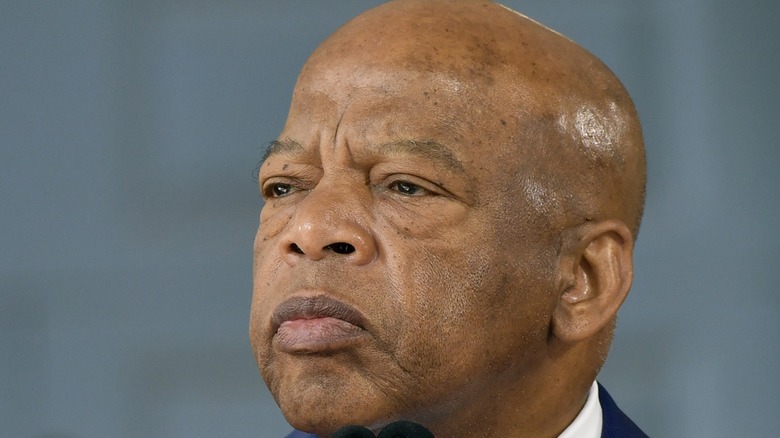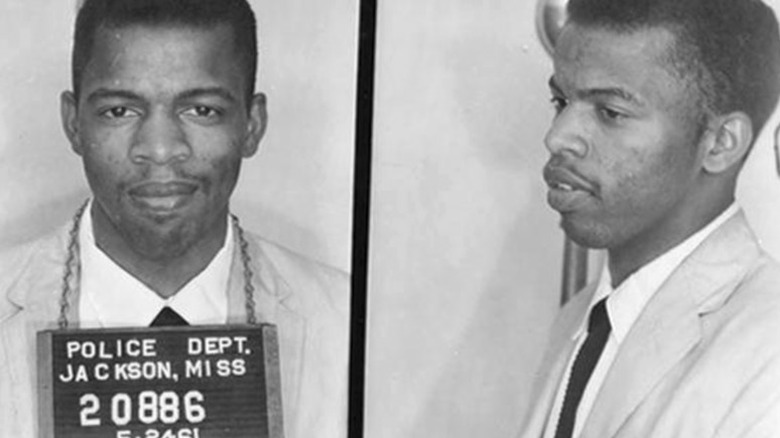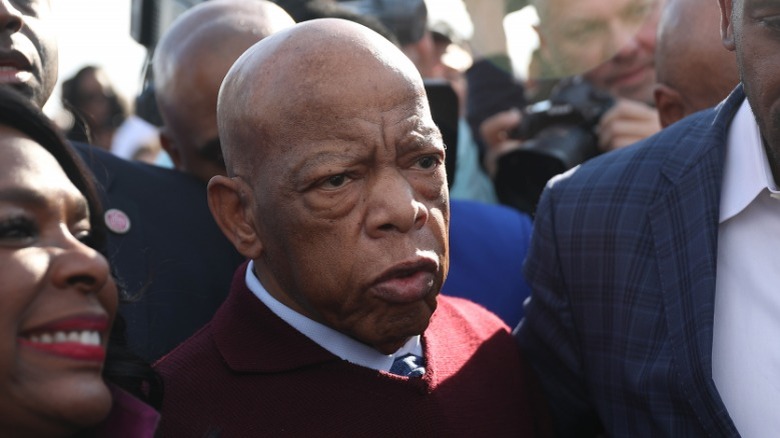How A Round Trip Ticket To Montgomery, Alabama Changed Rep. John Lewis' Life
John Lewis was much more than a congressman. His name has been etched into the history books as one of the great leaders of the American civil rights movement alongside Dr. Martin Luther King Jr., Malcolm X, and others who made personal sacrifices in a collective effort to make America truly free and equal for all on its soil.
Lewis came from humble means. He was born to poor sharecroppers in the town of Troy, Alabama, and had aspirations of one day becoming a preacher. But as he grew older, his passions began to shift. The deep south that was home to Lewis was among the most segregated regions of the country when he was a teenager. Lewis drew from multiple inspirations early in his life, each of which helped him elevate from an impoverished childhood to becoming one of the most well-respected social justice and political figures in his lifetime. The journey to his leadership role began when, at 18, he paid a visit to Montgomery, Alabama. The trip to one of the cities that fueled the fires of the movement started because of a letter the teenage Lewis wrote to a man who was on his way to becoming an icon of the movement.
He was encouraged to read everything he could
John Lewis' parents couldn't afford a newspaper subscription when he was a kid. Fortunately, he had a grandfather who could. His elder gave him the daily paper when he was finished reading it, helping to open Lewis' eyes to current events. Fueling his desire to learn was a teacher who was always pushing Lewis to read everything he could. He recalled the inspiring words she imparted to him when he was a young student (per NPR): "I had one teacher who'd tell me over and over again, she would say, 'Read, my child. Read.'"
And read he did. At one point, Lewis found a story that truly impacted him. He became familiar with Rosa Parks, the woman who refused to sit at the back of the city bus and is credited for starting the Montgomery, Alabama bus boycott. He also read about an energetic and charismatic minister that began making headlines — Dr. Martin Luther King Jr. Lewis later said that those two individuals' words and actions inspired him profoundly. Of Parks and King, Lewis stated (via NPR), "I kept saying to myself, 'If something can happen like this in Montgomery, why can't we change Troy?'"
Lewis kept reading, and King kept making news. Two years after Lewis graduated from high school, he wrote a letter to King. In correspondence that set the trajectory of Lewis's future, King answered the young man back. In the envelope with his reply was a round-trip ticket to Montgomery.
Lewis quickly became a leader of the civil rights movement
John Lewis boarded a Greyhound bus in Troy and made the 50-mile ride to Montgomery. When he arrived, he was met at the bus station by Fred Gray, Martin Luther King Jr.'s attorney. Gray drove Lewis to the Montgomery First Baptist Church, where he met King for the first time. When Lewis first walked into the pastor's office, he remembers feeling uneasy. "I was so scared. I didn't know what to say or what to do," he told NPR.
King introduced himself and asked Lewis if he was "the boy from Troy." Lewis told the outlet that King referred to him as such even after he was given his full name. But that first meeting marked the beginning of Lewis' activism. He began participating in nonviolent protests, doing his part to change the deeply segregated south. From the "whites only" lunch counters to the Freedom Rides that called out how the busing systems operated, Lewis was there. His efforts got him screamed at, beaten, harassed, and arrested many times. By the time the 1963 March on Washington was planned, 23-year-old Lewis was considered among the top leaders of the civil rights movement alongside King, James Farmer, and Whitney Young.


